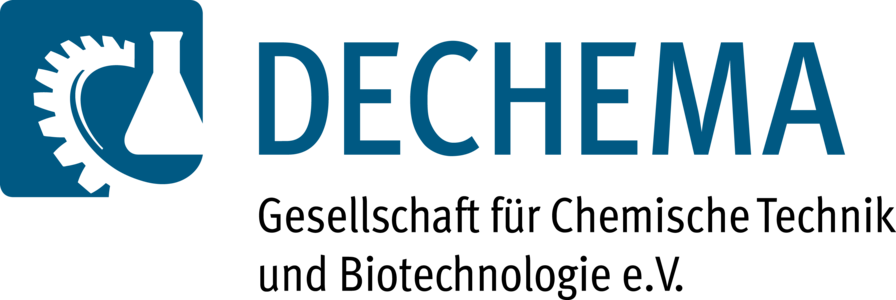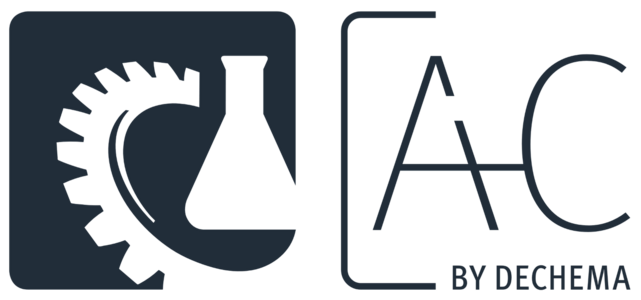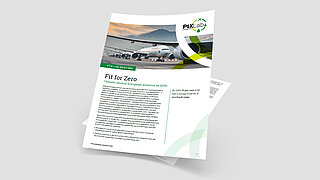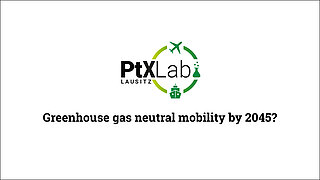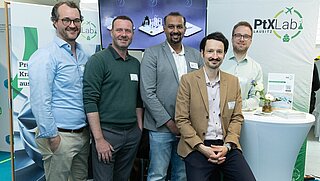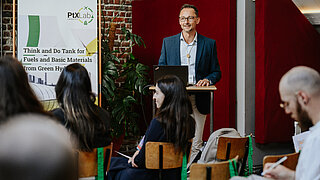Raw Material Demand and Availability for Net-Zero Aviation
PtX Lab Study | 01/2025 (updated version: 05/2025) | Topic: Ressources I 237 Pages
In the PtX Lab study Raw Material Demand and Availability for Net-Zero Aviation, authors Angee Fehling and Dr Dinh Du Tran (DECHEMA e. V.) as well as Anja Paumen and Dr Lorenzo Cremonese (PtX Lab Lausitz) analyse the resource requirements and availability for greenhouse gas-neutral aviation,
- which minerals are required for the production of e-kerosene (sustainable aviation fuels, SAF),
- and what conditions are necessary to enable its sustainable and economical production.
Bibliographic data
Publication: Raw Material Demand and Availability for Net-Zero Aviation
Publication date: January 2025 (updated version: May 2025)
Publisher: PtX Lab Lausitz – Think and Do Tank for Fuels and Basic Materials from Green Hydrogen, Calauer Straße 70, 03048 Cottbus
Authors: Angee Fehling, Johanna Gassenheimer, Dr. Dinh Du Tran, Dr. Rita Schulze, Dr. Ramona Simon, Dr. Philip Ruff (all DECHEMA e. V.)
Project management: Anja Paumen, Dr Lorenzo Cremonese (all PtX Lab Lausitz)
Suggested citation: PtX Lab Lausitz (2025): Raw Material Demand and Availability for Net-Zero Aviation
About the PtX Lab Study
The PtX Lab study Raw Material Demand and Availability for Net-Zero Aviation was commissioned by DECHEMA on behalf of PtX Lab Lausitz. The publication was produced under the leadership of Dr Harry Lehmann, Head of PtX Lab Lausitz, and project managers Anja Paumen and Dr Lorenzo Cremonese. The latter coordinate the PtX Lab working group ‘Resources’, which deals with the availability of critical raw materials required for the market ramp-up of power-to-liquid (PtL) products.

Copyright: PtX Lab Lausitz / Steffen Rasche
Mineral raw materials are crucial for the success of the energy transition and the transformation of industries. It is therefore extremely important to identify which raw materials will be needed in the industrial sectors of the EU and in which amount.
Resource coverage in aviation: cobalt, copper and co.
At least five million tonnes of e-kerosene must be refuelled at German airports by 2050 in accordance with quotas. To ensure this production volume, between 12 and 17 million tonnes of raw material is needed, including tailings. Of particular concern are those metals and minerals that are classified as critical by the European Union, and are also required in other transformative industries.
According to the authors of the study, shortages of cobalt and platinum, which are frequently used in catalytic converters, may turn up. Similar results are shown for the metal iridium, which is used in some electrolysers. Copper, zinc and nickel, classified under a lower criticality level by the European Union, could also suffer future shortages. Therefore, their utilization should also be carefully managed.
Strategies to produce sufficient volumes of jet fuel
Technological innovations alone are not enough to transform aviation. Only the complete replacement of fossil jet fuel with sustainable alternatives will enable climate targets to be achieved. The study outlines the following steps to achieve this target:
- Identify the technological processes to produce jet fuel that requires less resources along the entire value chain
- Integrating e-kerosene technologies into existing infrastructures
- Establishing international partnerships to secure supply chains
- Promoting recycling strategies and an internationally coordinated, sustainable circular economy
Contact
Dr
Harry Lehmann
Head of PtX Lab Lausitz
+49 151 40 171 692
Write E-Mail
more information
Contact
Dr
Sarah Bernhardt
Head of Section PtX Basic Materials
+49 173 56 150 72
Write E-Mail
more information

